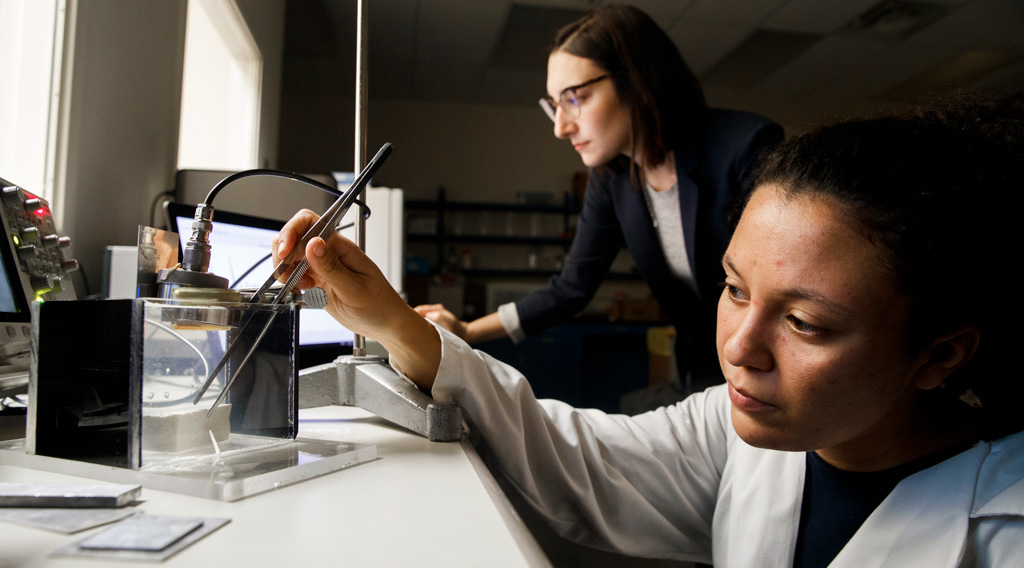Research Opportunities

Your Medical Physics undergraduate experience at Toronto Metropolitan University is rich with opportunities to gain authentic, real-time experience in science as it’s actually practiced – in the lab. Each research avenue has its own characteristics and processes.
Undergraduate Thesis
Most fourth-year medical physics students take this two-term course. It’s an independent project supervised by a faculty or adjunct professor at a research hospital. You’ll do oral presentations, a research poster and thesis defence — similar to how it works at the postgraduate level. In September, the department sends out project descriptions. See what interests you, and reach out to the supervising professor. Once you’ve been matched, you’ll spend the year completing the project.
Research Practicum
SCI 999 is an optional, one-term, non-credit course. You’ll gain early exposure to real-world research as part of a professor’s lab team. Talk with professors about their research and joining their lab. If you decide to work together, you must work with your supervisor to fill out and submit (google doc) Course Outline (external link) and the (PDF file) Application forms, along with departmental consent, to the course coordinator. You'll need to submit the forms two days prior to the open enrollment deadline for courses in each term. Check Significant Dates in the undergraduate calendar.
Summer Research Assistantship
Summer research assistantship is another great source of research experience. Each year, faculty members may define specific research objectives and invite students to assist. As students from other programs may also apply, the process is competitive and works similar to a real job search, requiring applications and interviews. Summer RA positions are paid, 16-week, full-time positions, typically funded by NSERC Undergraduate Student Research Awards or Undergraduate Research Opportunities (URO) program. Check the current postings for this year..
"During my studies in the Medical Physics program, I was offered several research awards including the NSERC USRA and Sunnybrook Research Institute Studentship Award. I was also able to publish abstracts and give presentations to several national and international conferences."
Medical Physics Co-op
The optional co-op program adds an extra year to the regular, four-year academic program. But you could graduate with paid work experience already on your resume, along with references and a network of industry contacts — a competitive advantage in the real world. Work terms are reflected in your transcript, and may involve research or other professionally-related, non-lab experience. Apply in spring after your first year, or at latest, fall of your second year. Find out how co-op works.
Volunteer Research
Faculty members may also offer opportunities for undergraduates to volunteer in their labs. These are typically part-time positions during the school year, helping with professors’ research projects. You’ll get real-time exposure to authentic science as it’s practiced in the lab. You may also have the chance to work closely with graduate students and professors. Reach out to a professor to discuss your interest. Once you find a supervisor, you’ll need to enrol in SCI 999, a non-credit course to prepare for the research environment.